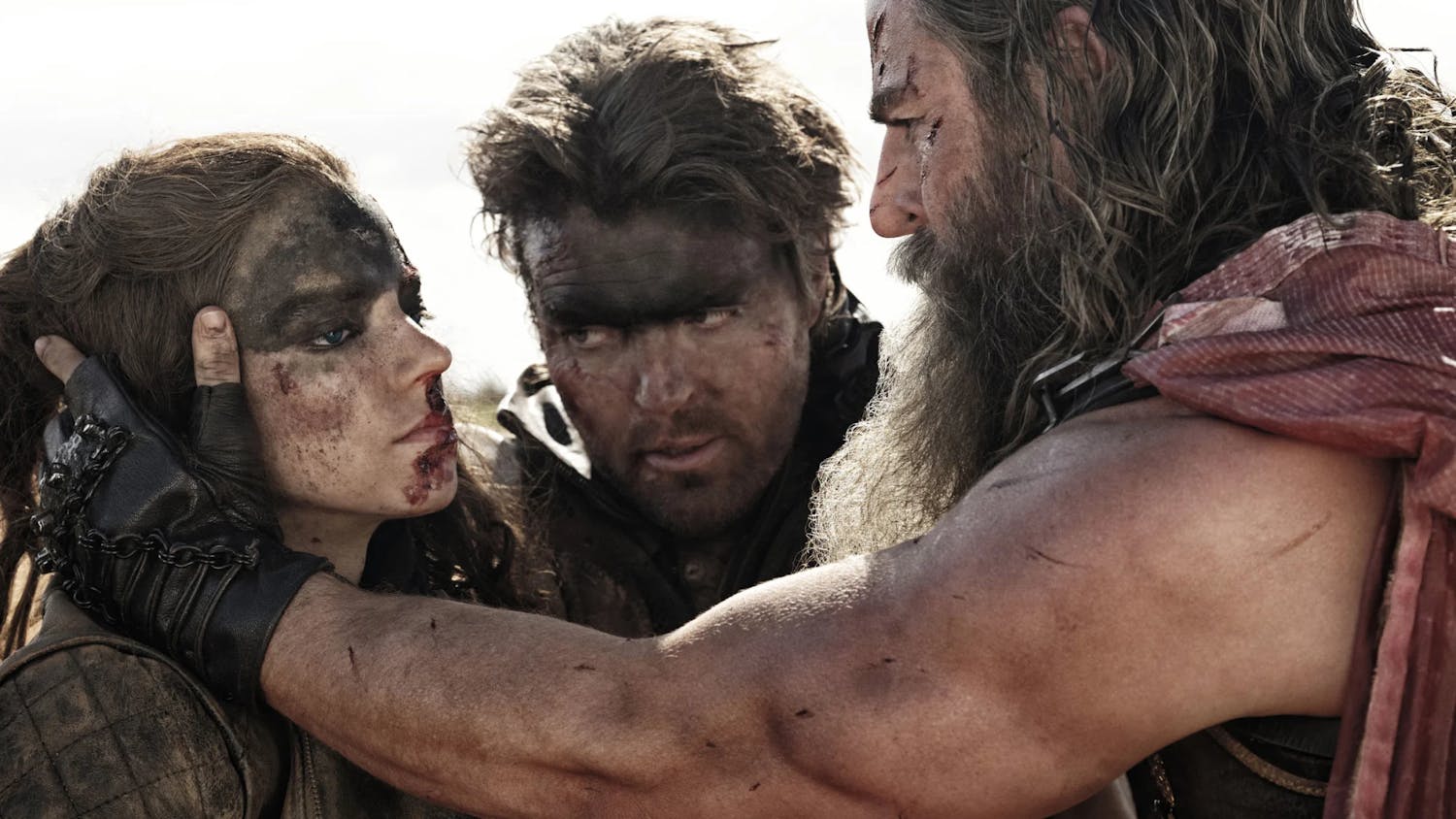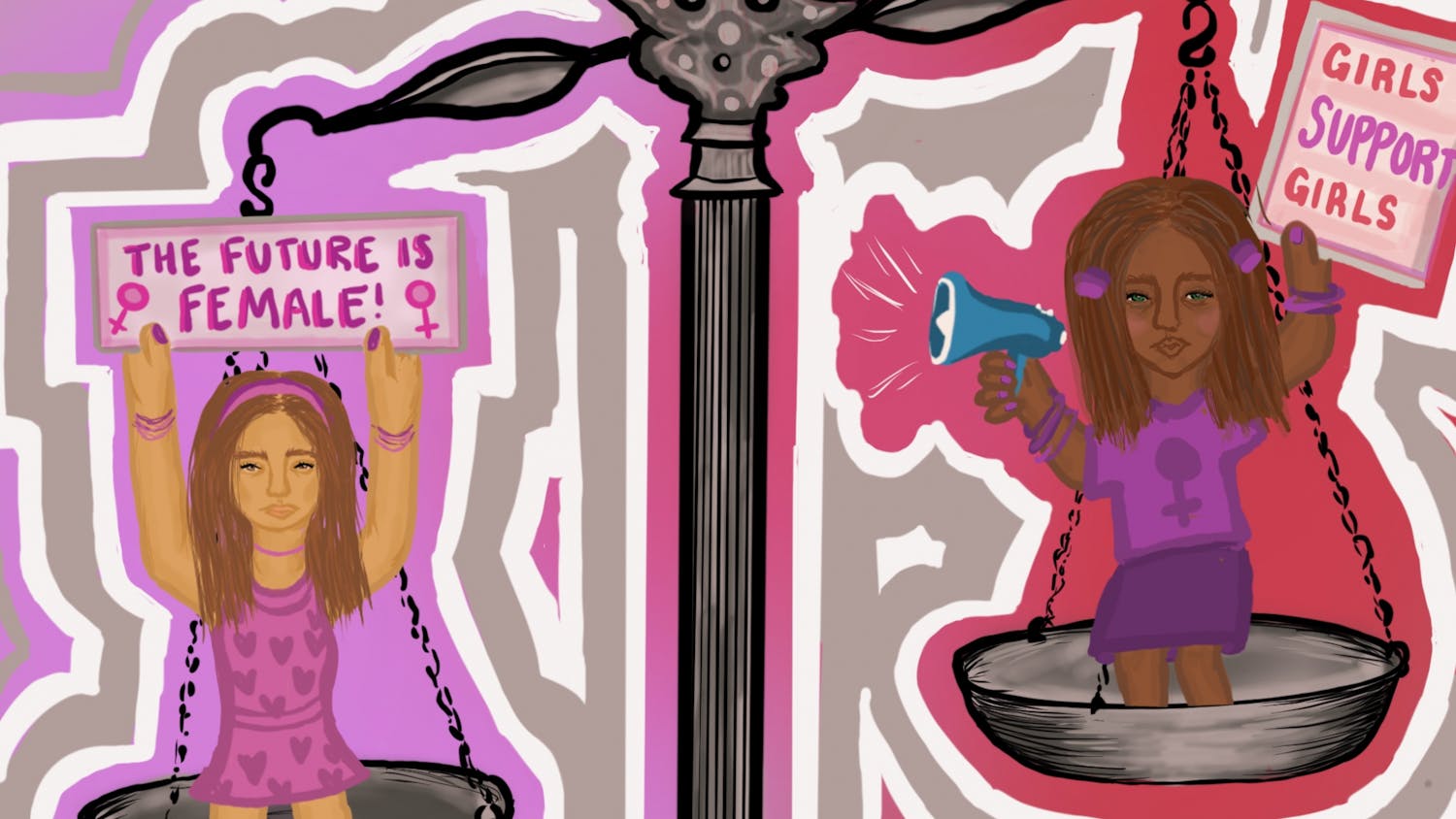I want to talk, quite seriously, about “Magic Mike XXL.” And also “Mad Max: Fury Road.” Not just because they were the two best movies of the summer, but because they represent two sides of a conversation about gender and audience identification in Hollywood movies.
See, “Fury Road” isn’t just the best action movie ever. It’s also gotten a lot of praise for being hyper-feminist in its anti-patriarchy, female empowerment messages and themes, and for paying more attention to Charlize Theron’s badass, “handicapable" hero, Imperator Furiosa, than to Tom Hardy’s Max Rockatansky—by the way, this is how you name characters Hollywood.
But the thing is, I’m not sure “feminist” is the exact right word for “Mad Max.” Does it empower its female characters, give them all rich interior lives that expresses in natural, thought-out ways? Yes. Do they have agency and behave like actual people? Absolutely, to the point that one of the escaping women tries to return to her former captor. It’s not a progressive impulse necessarily, but it fits who she is and allows her to be a flawed and wholly human character. It’s a more complicated moment than most films will afford even their female leads, and it’s given to a character who has maybe five or six lines in the movie. So yes, “Mad Max: Fury Road” represents women as actual human beings better than any recent major release I can think of right now.
That said, I’d argue that these elements aren’t necessarily “feminist” as much as they’re just good filmmaking and storytelling. Put another way, it isn’t feminist in the way that “Suffragette” will be, actively engaging with the history of the feminist movement and illustrating that struggle that women have had to fight, or at least come closer, to being treated equally in our society. It’s “feminist” in that it handles these issues well, actually treats its female characters with the same depth of thought that it does its male characters and doesn’t view them just as elements in the man’s story, but as the protagonist of their own story.
This is sort of the goal for “Mad Max.” The movie is “feminist” in that feminism should be our default, go-to setting on everything, and “Mad Max” just confirms that attitude and puts it on glorious, car-flipping display. Underscoring this point, George Miller had initially written Furiosa as a man, before realizing that he had just made a story about one man stealing another man’s wives, and seeing how horrible that idea was, he rewrote the character as a woman. Again, not necessarily a feminist manifesto, just working in a way that actual considers the implications of its gender politics, and aspires to make them as equitable and thought-out as possible.
I think the best way to divide it is into passive and active feminism. “Suffragette,” and films that directly engage with the challenges that come with being a woman in a deeply sexist world are actively feminist. Films that manage to transcend constrictions on women and actually present things as they should be, where everyone is allowed to carry their own story and be a real human character are passively feminist—aka what everything should aspire to.
This makes certain strands of the response to the film especially disturbing. At a press conference after the film’s premiere, Tom Hardy was asked something along the lines of whether or not he’d wondered, while filming, what all these women were doing in a “man’s movie,” or some similarly pig-headed thought. After looking bewildered for a second, Hardy, of course, responds “no, never.”
And the question addresses sort of the crux of my point. Because the question-asking idiot, idiot though he is, brings a relevant point forward. If “Fury Road,” a film placed as firmly in the tradition of cars and action and Metal and all things cinematically masculine as any, can’t even treat its women with a base level of decency and humanity without being accused of not being a “man’s movie,” then what hope is there?
The hope, my friends, is “Magic Mike XXL.” In the same way that “Mad Max” is nominally a “masculine” film (silly idea but bear with me) that delivers a perfect model of feminism in film, “Magic Mike” is maybe the most important film for dudes of any stripe to see, and it has this perception of being “for women,”because men take their shirts off. Thanks for that, Hollywood marketing.
But, honestly, the film radiates unconditional, nonjudgmental sex positivity from every angle. Every character is celebrated, embraced, empowered and put on display. It’s the healthiest model for male sexuality a movie has presented probably ever. It’s the healthiest models of male-male friendship a movie has put out, a beautiful and thoughtful model of how, regardless of sexuality and gender, we should all be treated, and treat each other, equally.
And if this sounds fuzzy and less than concrete, it’s because “MMXXL” pulls this off by denying any real conflict or even strict plot in the name of what a friend described as a mosaic structure. It moves from one set piece to the next (similar to “Mad Max”), and strings them together with pure momentum—both films are perfect road trip movies in this sense.
The result is that, rather than coming across as didactic and long and sounding like a lecture (sorta like this article), “MMXXL” trades in unfiltered joy throughout. It’s the most fun I’ve had in a movie in years, because everybody onscreen is having fun, and through that communal celebration of people that is stripping, it effortlessly shuffles you from perspective to perspective and allows you to identify with everyone in turn. Which, in the male-centered universe that is Hollywood, is incredibly necessary for improving the conversation about which films are “for” which audiences.
Am I saying that you should show “Mad Max” and “Magic Mike” to children? Maybe not. I’m saying that by pushing ourselves to see films that aren’t necessarily “for” us, we’ll get more used to seeing the world from others’ perspectives, which is the beauty of movies. We’ll get better at empathizing, and start to break down these archaic boundaries and actually see some progress in how characters, of any and all genders/sexuality/race/etc., are treated.
And, as these two films demonstrate, this doesn’t have to mean seeking out super underground indie flicks. We can do this in films about male strippers and massive car chases. We can be progressive and feminist and awesome and treat everyone equally, cinematically speaking, and still have a shit-ton of fun. In fact, it makes it way easier.






